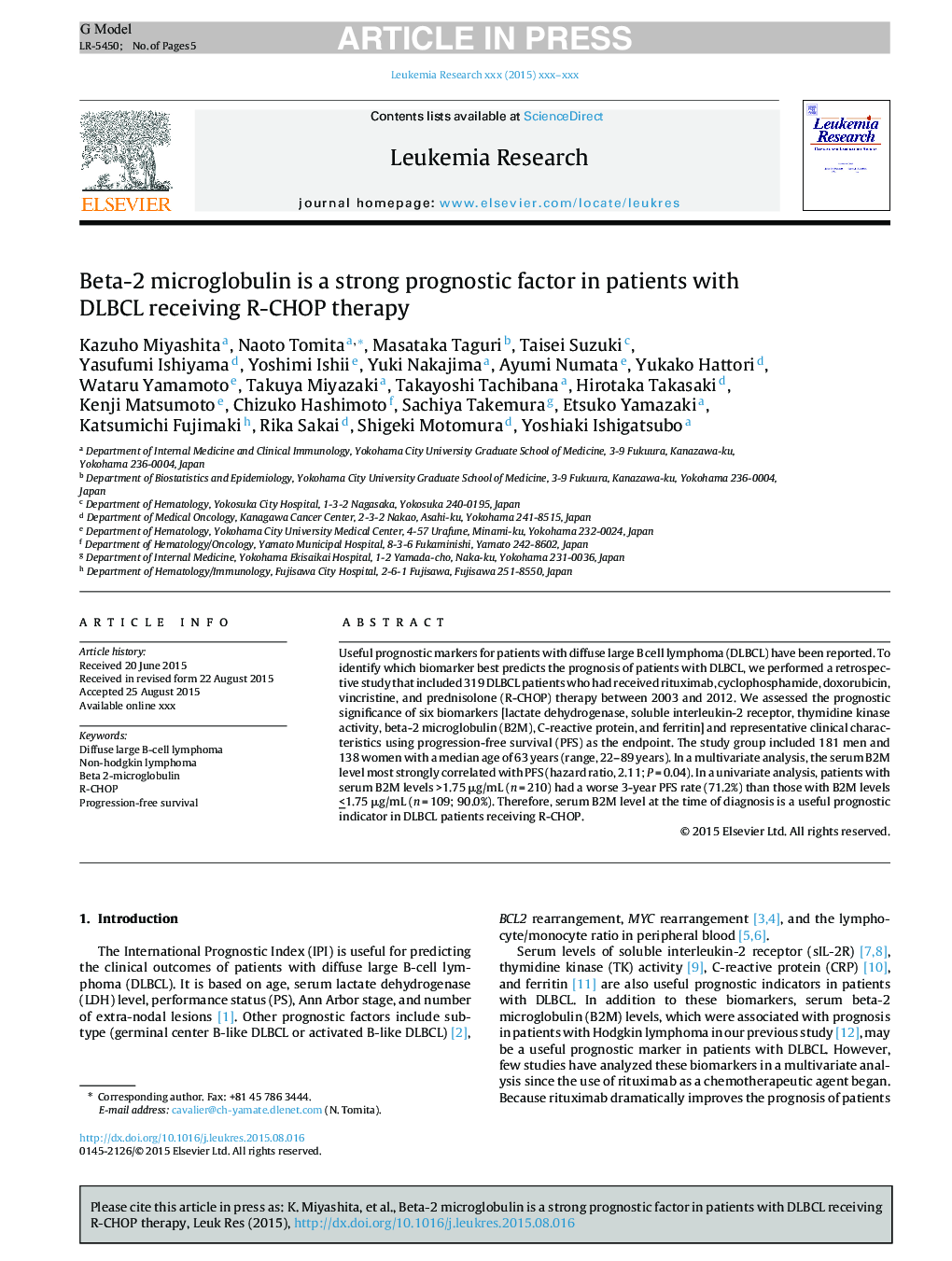| Article ID | Journal | Published Year | Pages | File Type |
|---|---|---|---|---|
| 10908620 | Leukemia Research | 2015 | 5 Pages |
Abstract
Useful prognostic markers for patients with diffuse large B cell lymphoma (DLBCL) have been reported. To identify which biomarker best predicts the prognosis of patients with DLBCL, we performed a retrospective study that included 319 DLBCL patients who had received rituximab, cyclophosphamide, doxorubicin, vincristine, and prednisolone (R-CHOP) therapy between 2003 and 2012. We assessed the prognostic significance of six biomarkers [lactate dehydrogenase, soluble interleukin-2 receptor, thymidine kinase activity, beta-2 microglobulin (B2M), C-reactive protein, and ferritin] and representative clinical characteristics using progression-free survival (PFS) as the endpoint. The study group included 181 men and 138 women with a median age of 63 years (range, 22-89 years). In a multivariate analysis, the serum B2M level most strongly correlated with PFS (hazard ratio, 2.11; P = 0.04). In a univariate analysis, patients with serum B2M levels >1.75 μg/mL (n = 210) had a worse 3-year PFS rate (71.2%) than those with B2M levels <1.75 μg/mL (n = 109; 90.0%). Therefore, serum B2M level at the time of diagnosis is a useful prognostic indicator in DLBCL patients receiving R-CHOP.
Keywords
Related Topics
Life Sciences
Biochemistry, Genetics and Molecular Biology
Cancer Research
Authors
Kazuho Miyashita, Naoto Tomita, Masataka Taguri, Taisei Suzuki, Yasufumi Ishiyama, Yoshimi Ishii, Yuki Nakajima, Ayumi Numata, Yukako Hattori, Wataru Yamamoto, Takuya Miyazaki, Takayoshi Tachibana, Hirotaka Takasaki, Kenji Matsumoto, Chizuko Hashimoto,
